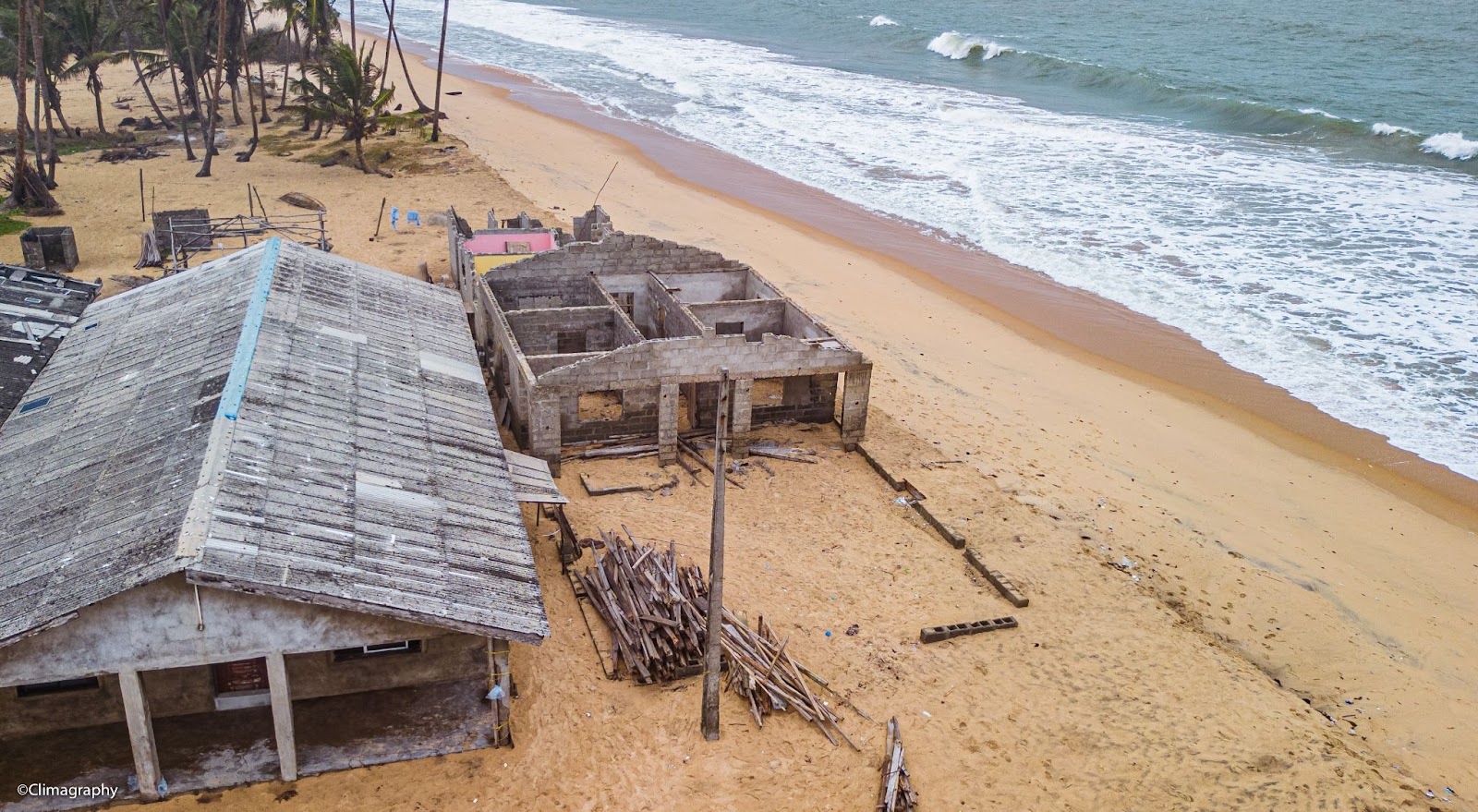By Mayowa Adebote & Mary Adebote
Moving through what was left in the ruins of some parts of the Akodo Ise community, I witnessed firsthand climate-induced losses and damages. I couldn’t help but imagine the groans and pains that remain etched on the memories of those who once lived here as I saw the deplorable devastation: damaged electrical grids, burial grounds swallowed up, completely built structures now abandoned and partially buried by the encroaching sea.
Akodo-Ise located in the eastern part of Lagos State, Nigeria, within the Ibeju-Lekki Local Government Area, is one of the many coastal communities in Lagos state impacted by poor development planning and more evidently threatened by climate change. With every passing minute, Akodo-Ise faces increasing vulnerability due to rising sea levels, ocean surges, and storm-induced flooding.
A few kilometers from the disintegrating Akodo-Ise community, the bitumen-paved Lekki Free Trade Zone Road sits comfortably. Other significant landmarks in Akodo Ise’s environs are the popular La Campagne Tropicana beach resort, Lekki Deep Sea Port, and the $20 billion Dangote Refinery.
During my visit to the community, the traditional leader (Baale) of Akodo Ise granted me an audience. Together, we took a walk along what used to be his Palace and lamented how his coconut farmland had been destroyed in a single night. The recurrent flooding and erosion eventually forced him to relocate from his home.
“That used to be our community primary school,” said another community leader, pointing to some affected structure close to the edge of the ocean. He explained how after losing their homes, many residents were left with no choice but to leave the community. What used to be a serene environment and bubbling economy, thriving on rich fishing activities is now a shadow of itself.
Lagos State has repeatedly experienced severe flooding, erosion, and other climate-related impacts, particularly during the rainy season. The state’s location along the Atlantic Ocean makes it naturally susceptible to these threats. However, human-induced factors such as poor drainage systems, improper waste disposal, and the destruction of wetlands due to rapid urbanization have significantly worsened the flooding situation in Lagos, including in Akodo Ise.
The rising sea also continues to damage fishing grounds and vessels, destroy farmland, and lead to severe economic hardships. Beyond Lagos, erosion is a common natural occurrence along Nigeria’s coastline, contributing significantly to flooding in many coastal communities.
Given the severity of the situation, both local and international organizations must collaborate on proactive efforts such as improved coastal defenses, sustainable urban planning, and community-based adaptation strategies to mitigate the impacts and secure the future for communities like Akodo Ise.

